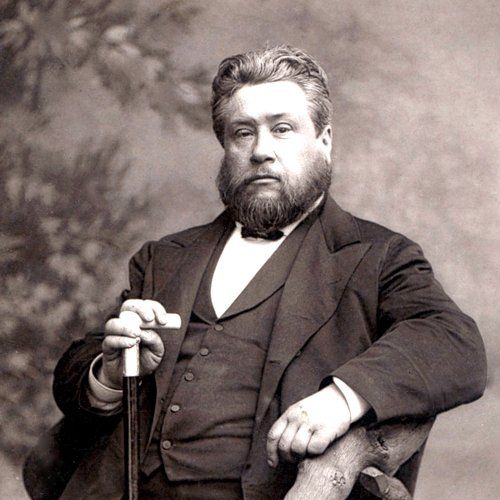Why Spurgeon Changed His View on Sermon Helps

C.H. Spurgeon, the renowned British preacher of the 19th century, spoke harsh words against the overuse of sermon helps.
When a man named Jabez Burns released Two Hundred Sketches and Outlines of Sermons, Spurgeon was ambivalent. “We do not altogether deprecate the use of other men’s outlines,” he said, “for every now and then a preacher may be hardly driven for time, or he may feel mentally incapable of new thought, or he may be a mere beginner and unable to arrange his matter.” But he didn’t want it to become a habit. “Woe to those who speak in the name of the Lord, but only utter words which they have stolen, every man from his neighbor.”
According to Living by Revealed Truth, an excellent book on Spurgeon by Tom Nettles, Spurgeon later softened his view. Later, he recommended a book of Sunday school addresses. “Though not believing in the plagiarism of a whole speech, we yet think that some who give addresses would be very wise if they were to borrow one of these, cut it into their own shape, and deliver it in their own style,” he said. He argued that it’s permissible to receive an idea, shape it into our own language, and deliver it to others.
Recalling that he had been judgmental about the use of sermon outlines just two months earlier, he said, “We hope this sentence will be balm to those wounds which we inflicted in a former number when we denounced purloiners of other men’s outlines.”
Later, Spurgeon provided sermon helps for pastors himself, including outlines, introductions, subpoints, and tips. “The references to works and sermons are a new feature in sermonic literature, and are exceedingly valuable.”
What softened Spurgeon’s views?

Pastors in Need
In 1875, Susie Spurgeon took the first step in establishing her book fund, aimed at providing deprived pastors with the tools they needed for ministry.
When she received responses to her first offer of books, Charles Spurgeon was disturbed. “It is a sad fact that there should be so many needing such a present. Cannot something be done to provide ministers with books? … Some of the applicants have not been able to buy a book for the last ten years! Does anybody wonder if preachers are sometimes dull?”
Spurgeon gained a greater understanding of the needs of ordinary pastors. He became more sympathetic to their struggles. He realized that some need extra help because of the limitations of their situation and abilities.
Spurgeon still expected pastors to work. He spoke against laziness, and encouraged careful thought and research. But he had compassion for pastors. He didn’t want “to leave a weary mind without help.” He wanted to “pour a little water down a pump to help it to draw up a stream from below.”
Use Helps, Work Hard
I like Spurgeon’s balance.
There’s no excuse for plagiarism in the pulpit. To preach someone else’s sermon is, in almost every case, wrong. Preachers must work hard. There’s no substitute for our own work in the Word. We must spend time in the Word ourselves; the text must wash over our soul; and then we must preach as one who has sat under the text and met the Lord behind the text.
But we must also make wise use of helps. We must also show compassion for under-resourced pastors who could use a little help, not because they’re lazy but because of circumstances.
Spurgeon changed his view has he became aware of the needs of struggling pastors. I’m grateful for the sermon helps that he’s left behind, and I benefit from them. Let’s use helps — but let’s commit to working heard, and preaching out of our own hard work and meditation with the Word as our primary source.
var _paq = _paq || []; var url = "https://gospel-for-life.storychief.io/spurgeon-preaching-helps?id=1127976113&type=2"; const queryDict = {}; location.search.substr(1).split("&").forEach(function(item) {queryDict[item.split("=")[0]] = item.split("=")[1]}); if ('contact' in queryDict){ const separator = (url.indexOf("?")===-1)?"?":"&"; url = url + separator + "contact="+queryDict['contact']; } if ('list' in queryDict){ const separator = (url.indexOf("?")===-1)?"?":"&"; url = url + separator + "list="+queryDict['list']; } _paq.push(['setDocumentTitle', 'Why Spurgeon Changed His View on Sermon Helps']); _paq.push(['setCustomUrl', url]); _paq.push(['trackPageView']); _paq.push(['enableHeartBeatTimer', 15]); _paq.push(['enableLinkTracking']); (function() { var u="//storychief.piwikpro.com/"; _paq.push(['addTracker', u+'piwik.php', 'd767e251-e777-4580-bbc2-19cabecad9ef']); var d=document, g=d.createElement('script'), s=d.getElementsByTagName('script')[0]; g.type='text/javascript'; g.async=true; g.defer=true; g.src=u+'piwik.js'; s.parentNode.insertBefore(g,s); })();






